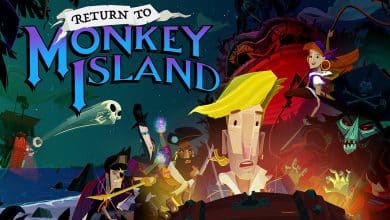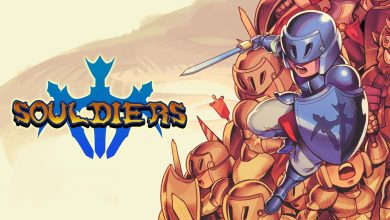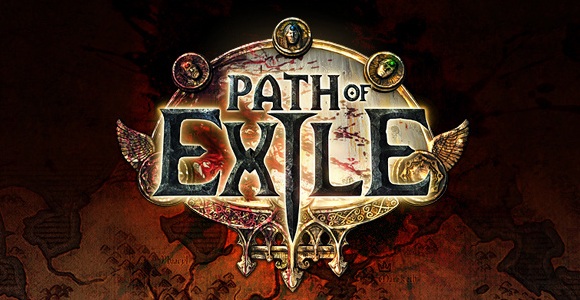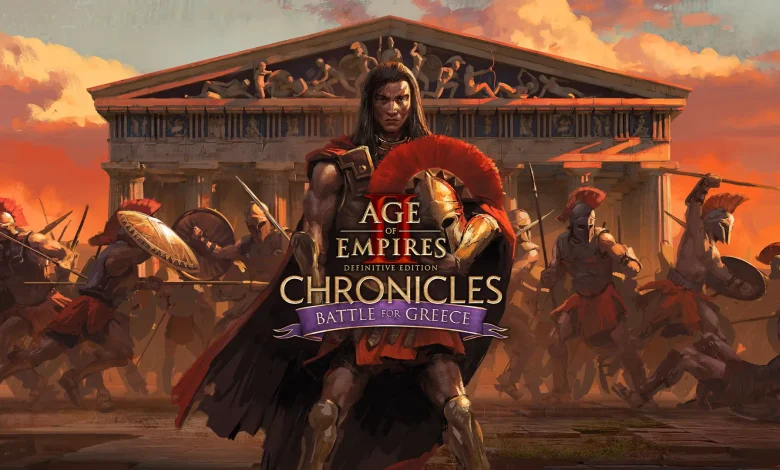
AGE OF EMPIRES II: DE – CHRONICLES: BATTLE FOR GREECE
It is difficult to present a title that confronts you with a profound reflection, independent of the one that happens at every turn of the year. In the case of Chronicles: Battle for Greece, the most recent DLC for Age of Empires II: Definitive Edition, it was more a matter of reflecting on the past year... I remember my excitement and engagement with Age of Empires II HD Edition, back when we were already counting down 14 years since the release of the original AoE2: Age of Kings, as something very recent. The landing was indeed abrupt to say the least, as it's been 11 years since then. This - progressively osteoarthritic - encounter with the passage of time contrasts with the content of Battle for Greece, which is a fresh breath of life by stepping on all the right foundations of an already successful title.
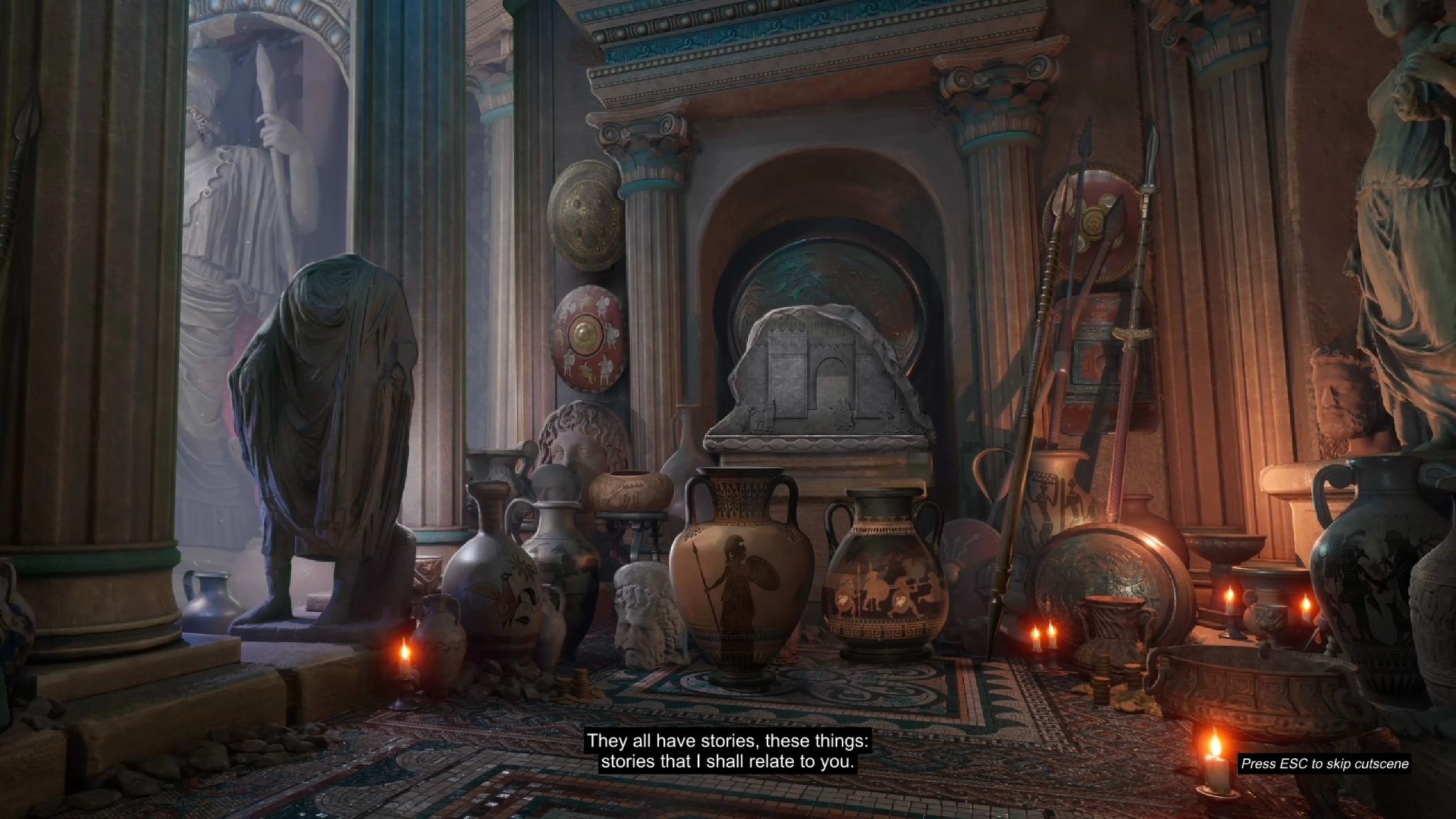
The second part of the evaluation that Battle for Greece led me to was in the first steps I took when I started writing for the PC Master magazine. In the Strategy HQ column, I was writing that publishers no longer dare to innovate as much as they can/should, opting for the same recipe solution. The result, among other reasons, is that the real-time strategy (RTS) genre is vegetating like the point'n'click adventures used to before their resurgence. Technical limitations (i.e., controls), the common console-PC market requiring major compromises to ensure compatibility across different platforms, make the genre one of limited audience. However, AoE2's audience is still at the very least passionate about it, a fact that has led to systematic support and renewal of the title at regular intervals. What we have here is a DLC composed of the classic principles of an RTS campaign, using as building blocks all the experience the team has gained from previous DLCs. The result is exceptional to say the least!
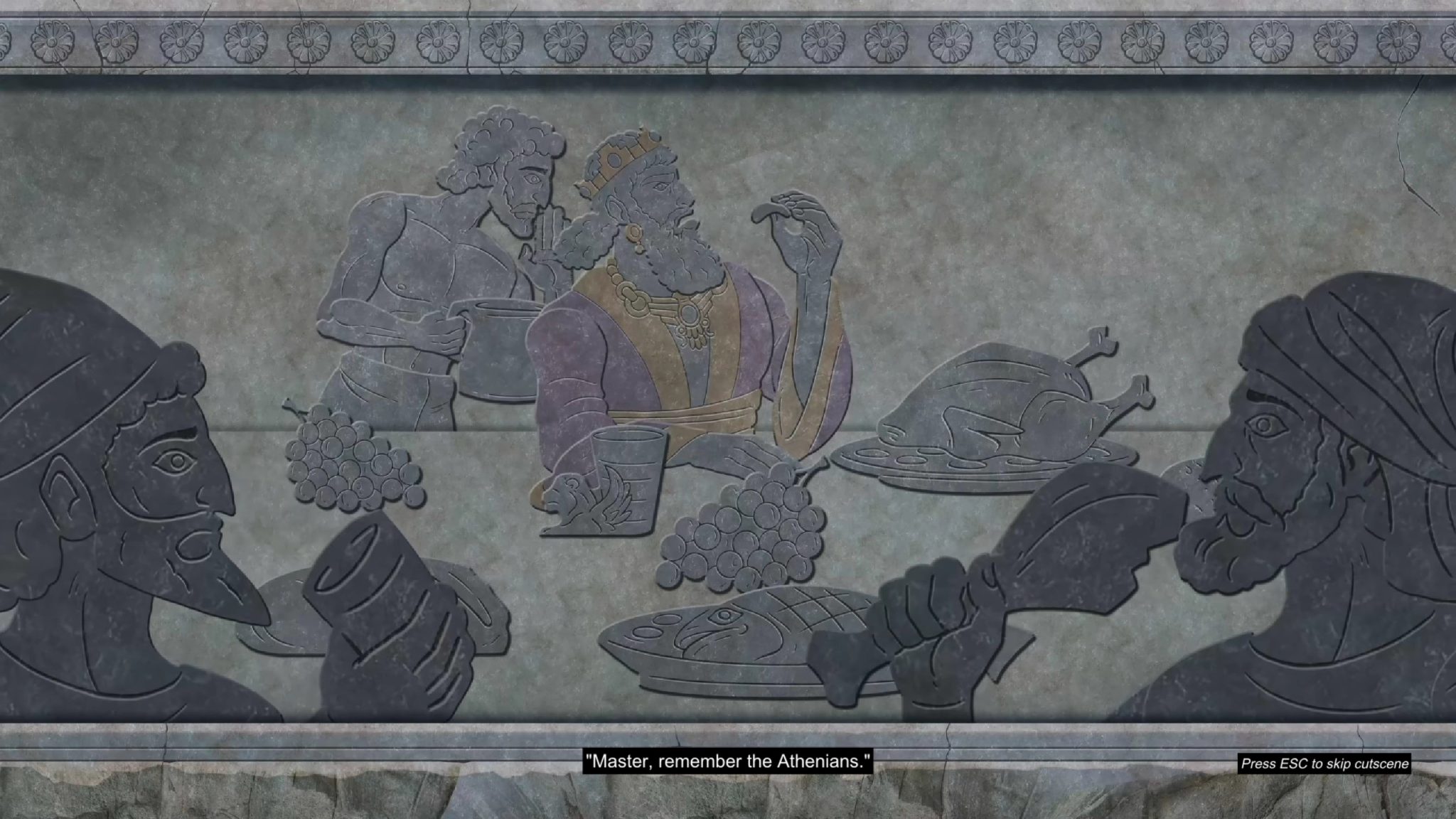
As the name suggests, Battle for Greece is set in the Classical Age and deals with its most important military events, beginning with the Ionian Revolution. It follows the Persian Wars and ends with the total victory of Sparta in the Peloponnesian War. Expectedly, the grand campaign will take us across the greater breadth of the central-eastern Mediterranean: from the hinterland of Asia Minor and the destruction of Sardis, to the fall of Miletus, the campaigns in Cyprus and Syracuse, to the forests of Laconia. I mention the locations because special care has been taken to ensure that the maps, where the 21 scenarios in total take place, are as geographically faithful as possible, a philosophy carried over from previous campaign scenarios in the Definitive Edition DLC (e.g. The Hautevilles). Thus, in the Cyprus campaign our exploration gradually reveals the entire island, while in the Battle of Thermopylae we can make out the Malian Gulf along with the Strait of Artemision.
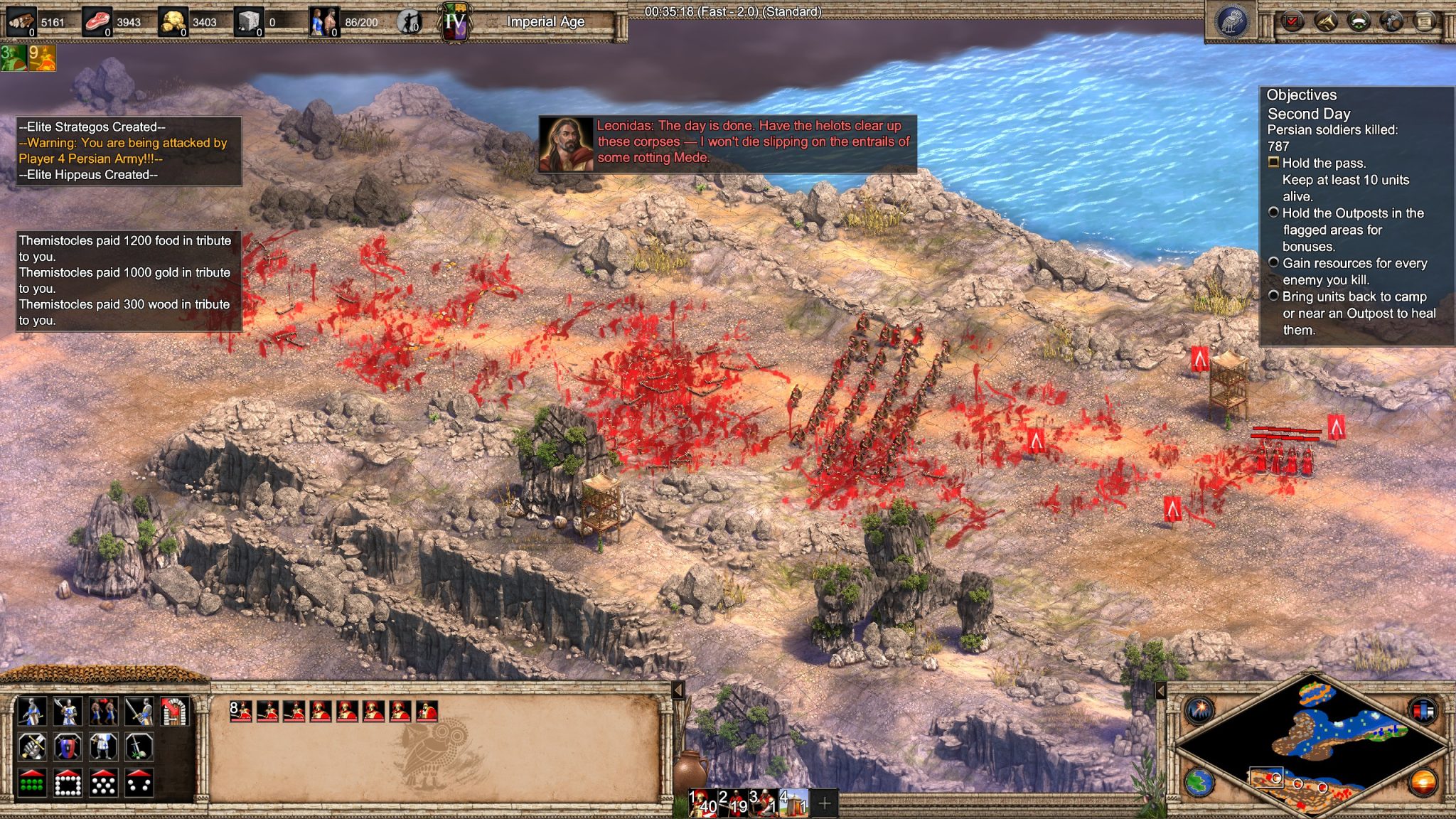
The campaign itself is a real trip down memory lane back to the days when RTS were at their peak and could both deliver stories and keep players interested and engaged. Plot changes as the actions of the same map unfold (rather than just a skirmish cloaked with a script), choices that follow us throughout the campaign are some of its features. The important thing is that it is not limited to the same play pattern in each scenario, but alternates approaches and victory conditions depending on the historical battle it deals with. For example, during the Battle of Thermopylae, we are called upon to hold off the Persian troops as long as we can, but after the third day we cannot produce any more units. Similarly, to show off the Athenian naval empire, we can unlock unique technologies for ships that make them extremely deadly to a comical degree (seriously, they're deadly). All of these techniques are an evolution of many different ideas that were implemented to a greater or lesser degree in previous campaigns, implemented in a well-polished wrapper. For example, the Victors & Vanquished DLC that preceded Chronicles had experimented with such choice-consequence situations in large maps, but had pacing issues as each map was between 2 and 4 hours long. Here, the duration is considerably shorted but scenarios have fully adopted the choice-consequence motto both for the individual scenario but also for the extent of the campaign itself.
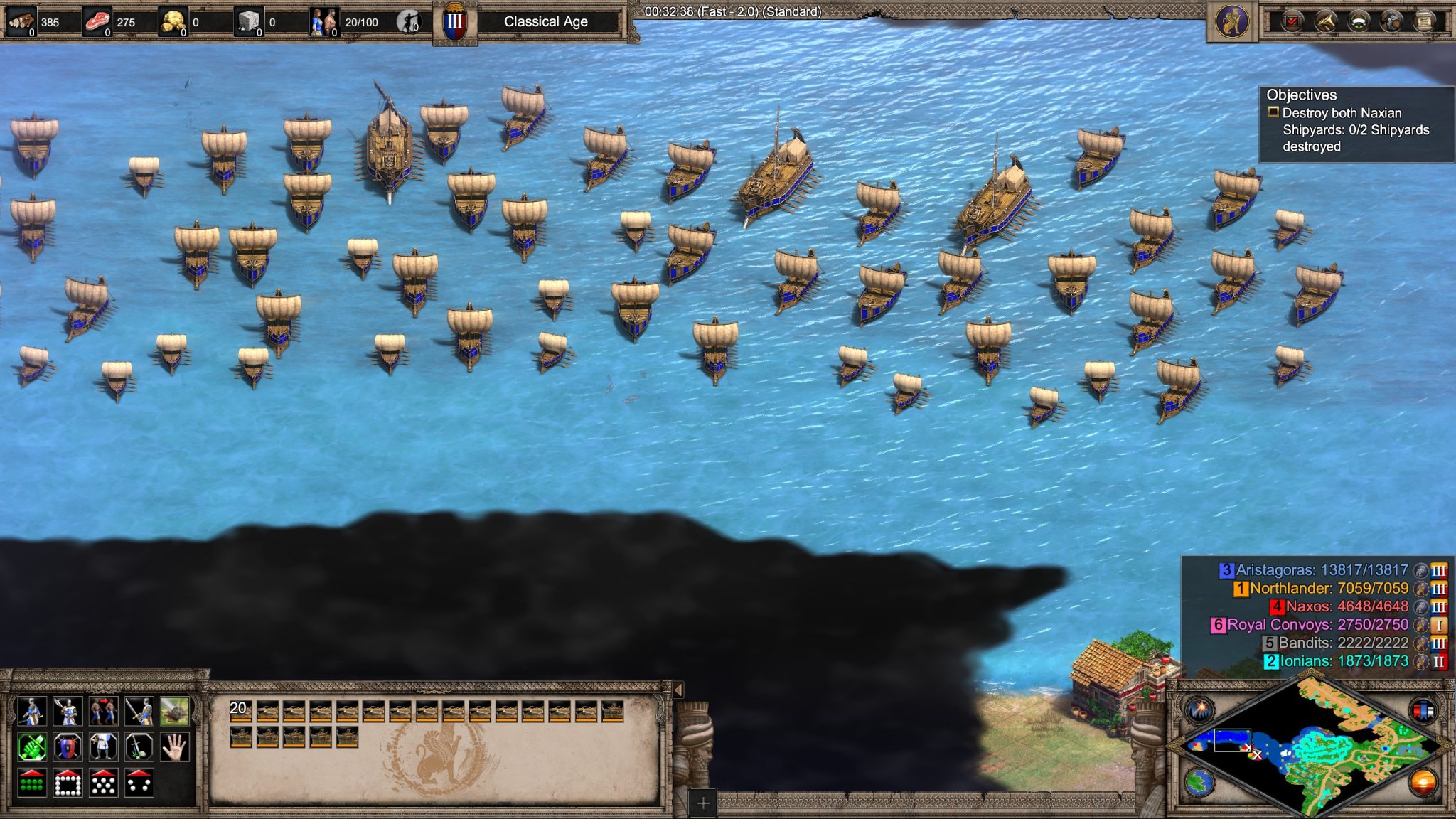
s a narrative medium, Battle for Greece adopts two main pillars: the three civilizations it brings and the protagonists-historical personalities of each civilization. The civilizations that come with the package are the Achaemenids, the Athenians and the Spartans. Each civilization has its own technologies and are available for skirmish games but not for ranked play, as they are quite "broken" offering several advantages in more structured situations like Elo games. For example, Athenians have the ability to set policies from Town Centre which can lead to very fast eco(nomic) booming from the very beginning without the need for additional Town Centre (as is common). Similarly, Achaemenids can turn each Town Centre into a different upgrade (Civic/Military) by providing the corresponding bonuses to buildings within their radius. Spartans can take up to two Polemarchs (warlords) that give additional bonuses to their hoplites. Otherwise, aside from the noticeable aesthetic difference, the buildings, units and technologies are renamed but equivalent one-to-one to those found in the base AoE2 game with a few exceptions.
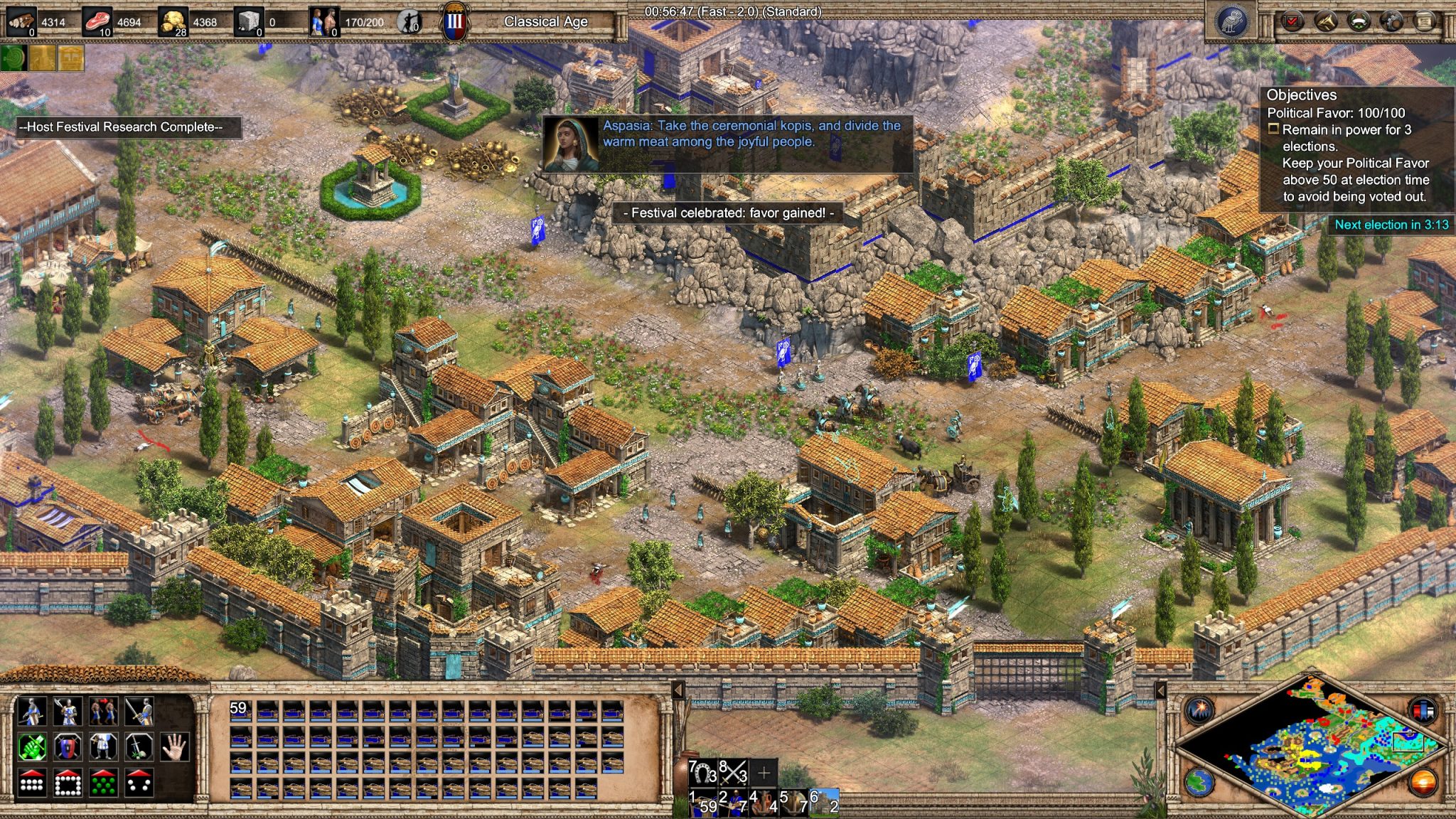
With civilizations as the canvas, Chronicles sets out the protagonists as the driving force behind the events of the grand campaign. Drawing on the historical sources (Herodotus, Thucydides), Chronicles lists in a very peppy way and without embellishment or idealization the main personalities whose decisions were destined to determine history to a transcendent degree. Aristagoras is a cowardly opportunist, Themistocles a genius scheming politician, Brasidas is presented as a virtuous moderate leader on the opposite side of Lysander who is borderline bloodthirsty and ruthless. What is remarkable about the campaign is that despite the personalities at the centre, the historical moments are examined in the light of interdependence and this is where the third point of review comes in. Chronicles made me reconsider both the way we studied History during our school years and the parallels with the present day in terms of rivalries, the evolution of the political economy, etc. The absence of any idealization but rather citation of historical facts, e.g. the Achaemenid empire was one of the most meritocratic in the western ancient world, contributes greatly to the above.
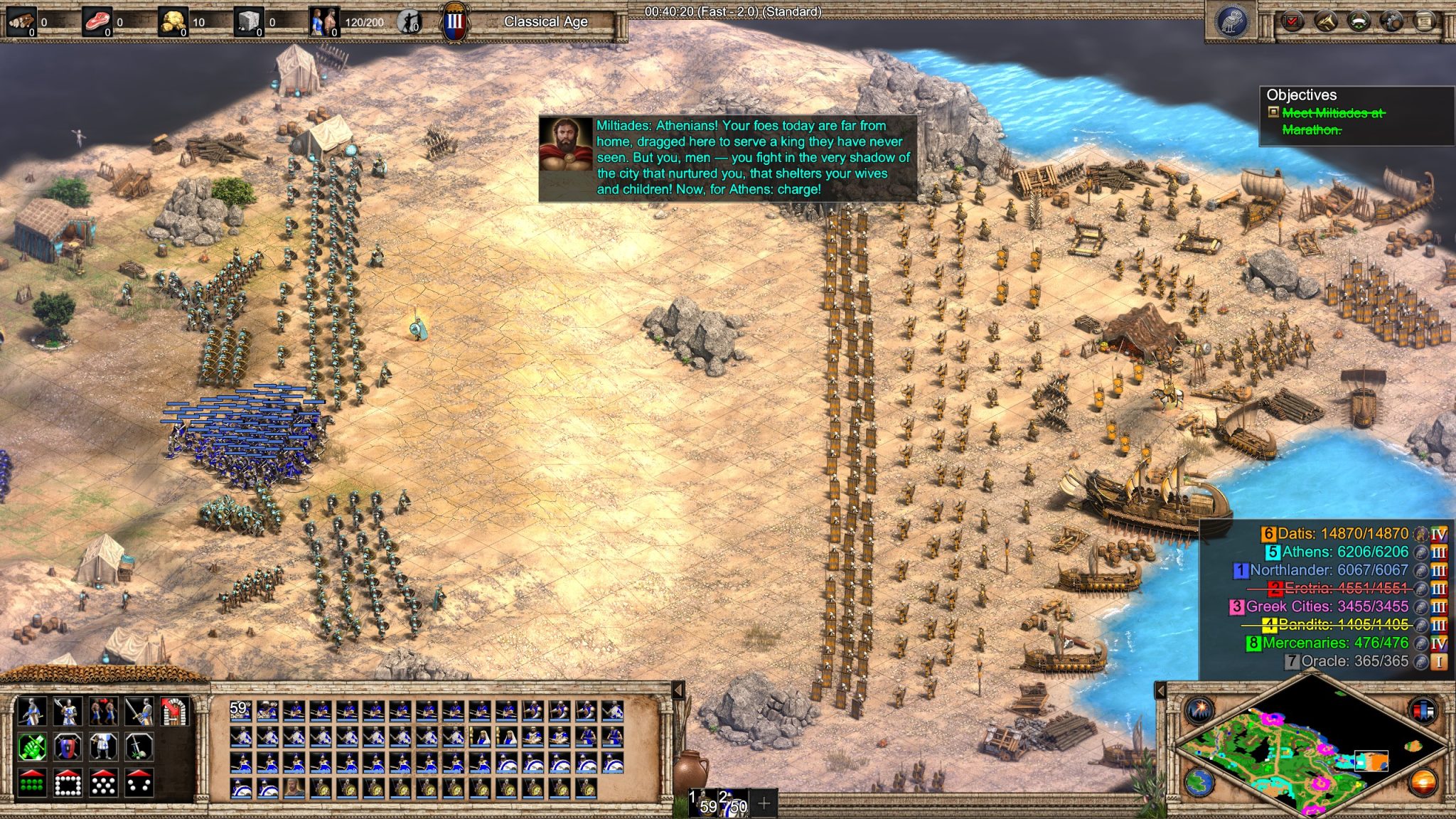
This fidelity to historical sources is limited to some extent by technological conditions. For example, the Battle of Marathon emphasizes mainly the behind-the-scenes preparation for the battle, with Themistocles in the foreground, while the battle itself takes place in a short period of time and is not 100% accurate. Naturally it couldn't be otherwise, since AoE2 isn't Total War, so getting the formations right isn't really essential, but the experience isn't diminished by it at all. A lot of emphasis has also been placed on the architecture of the buildings. Elias in his review of the main body of the Definitive Edition had mentioned how much work had been done to bring out all the buildings and architectural styles in a vibrant way according to the culture. This vibrancy extends in the Chronicles from the Hoplites to the Mesopotamian architecture in the Medes' buildings (a personal favorite).
Ultimately, the key question is whether it's worth spending time and money on Chronicles. The answer is succinct: absolutely. We're dealing with a package that revives the classic grand campaigns as they were in the good old RTS (whether that's called Starcraft, Red Alert 2, or Dune 2000). At the same time, with the arrival of Chronicles, the first Definitive Edition DLC (Dawn of the Dukes, Lords of the West, Dynasties of India) have been added to the core of the game and are available for free. Chronicles seems to be just the first step in a new series of narrative campaigns they've got in the works, with the cliffhanger suitably setting the stage for one of the greatest generals in human history. Personally, it pulled me back into the world of Age of Empires 2 for good, as after the campaign ended, I found myself spinning in a medieval vortex full of intriguing stories and strategic challenges.
RATING - 97%
97%
Herodotus approved.
Chronicles: Battle for Greece is the breath of life the RTS genre needs, with a satisfying campaign like the good old days.
